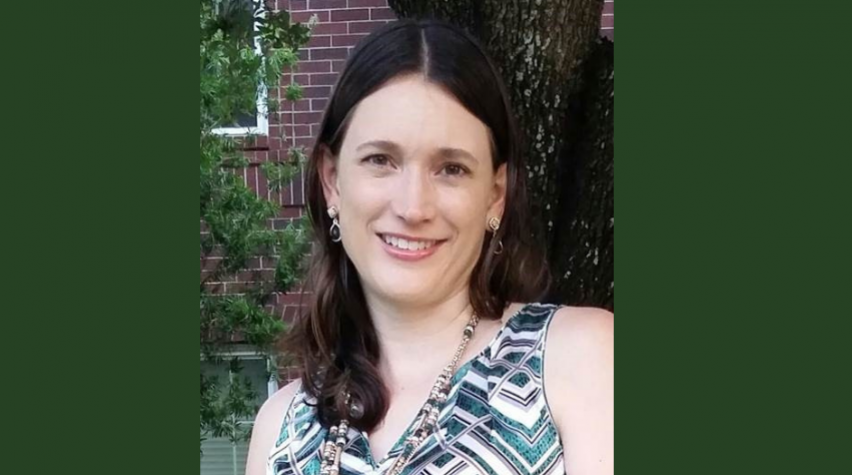
Welcome to the latest in a series of AIChE blog posts profiling process engineers, a diverse group of professionals spanning multiple industries and regions. In this series, we profile process engineers who work in a wide range of fields, including petrochemicals, pharma, bulk chemicals, food, or any process-intensive industry.
Are you a member and process engineer interested in being profiled? We’d love to hear from you via this volunteer opportunity. Please also check out our online discussion group specifically for process engineers. You can find out about these initiatives and join our efforts by visiting https://www.aiche.org/processengineering.
This month, we introduce you to Christin Newell, who works as a process consultant at PrimeStar. She discusses her process engineering career trajectory, overcoming challenges, and the importance of her work.
Tell us a bit about your work as a process engineer.
I worked for an engineering design firm for the first three years after graduation, including some time at Merck. Next, I worked for five years at a manufacturing facility that made biogums in food, pharma, and industrial grades. At this small facility, there were opportunities to try many different things: I learned GMP standards, batch fermentation, and solids handling as well as distillation column operations. I was also on the ISO auditor team and the emergency response team.
After I had my daughter, I moved back to Houston to URS, an engineering design firm. I have stayed in design since then, but my operations experience has helped me to both better understand client needs and evaluate retrofit projects. I worked on two main projects at URS: One was an FCC catalyst plant where I got to use my solids handling experience; the other was the first commercial scale of a drag reduction polymer plant.
After this, I went to Mustang where I worked on gasification, a first-of-kind gas plant, LNG, and researching the algae biofuels market. I had the unique opportunity to travel to Mozambique while on the LNG project there. At Hargrove I worked on a few gas projects and an algae biofuels pilot plant.
Mostly, I acted as the process lead for three different specialty chemical basic engineering design packages. These were really interesting because I created the simulations, PFDs, and P&IDs from a blank sheet of paper. I also travelled to China for each of these projects for initial client meetings and to deliver the engineering packages.
Why did you become a process engineer?
When I was in high school, I loved chemistry and problem solving. I didn’t really know what chemical engineering was, but I thought it would be chemistry with problem solving. I was pretty close.
Process engineers start every design project. We interpret what the client needs and develop all the information the other engineering disciplines need to complete the facility design. Our work must be accurate and complete or the process won’t work as intended.
What were some of the biggest challenges you faced in your role as a process engineer?
I had fewer challenges my first three years in a design firm. (I had to ask a boss to stop calling me “sweetie.”) When I went to the manufacturing facility, I was the only woman engineer and I also looked young. I kept being asked if I was an intern. Even the engineering leader treated me like I had no experience, since he completely discounted my office experience.
After I toughed it out the first year, the operators started to accept me more since it looked like I was staying a while. I also found out that others at the facility called two groups of engineers “the good old boys’ club” and “the little boys’ club.” I, of course, was in neither.
How is your work as a process engineer critical to your particular job assignment or industry?
Process engineers start every design project. We interpret what the client needs and develop all the information the other engineering disciplines need to complete the facility design. Our work must be accurate and complete or the process won’t work as intended. We are the only engineering discipline that understands the chemistry, the reactions, and what is happening inside the pipes and vessels.
Working directly at a facility, I had the opportunity to discover problems with the operations and develop solutions. Then I would select the equipment to be installed or the procedure to modify and train the operators. Understanding the process (the chemistry and the big picture) was critical to providing working solutions.
What do you think was most important about what you did as a process engineer?
I think training and mentoring younger engineers has been most important. This helps future engineers improve their skills. It is very satisfying to help younger engineers navigate some of the same obstacles you’ve had. I remember some cases when young engineers were misled by the internet, and I had to redirect them.
Overall, it is wonderful to see your team prepare a successful design package and perform beyond expectations.
Connect with Christin on AIChE Engage
Join the Community of Process Engineers
The Community of Process Engineers is brought to you by Scott & Karen Love. Their support enables the AIChE Foundation to advance process engineers at every stage of their career allowing them to Do a World of Good.
AIChE Foundation – Doing a World of Good Campaign



